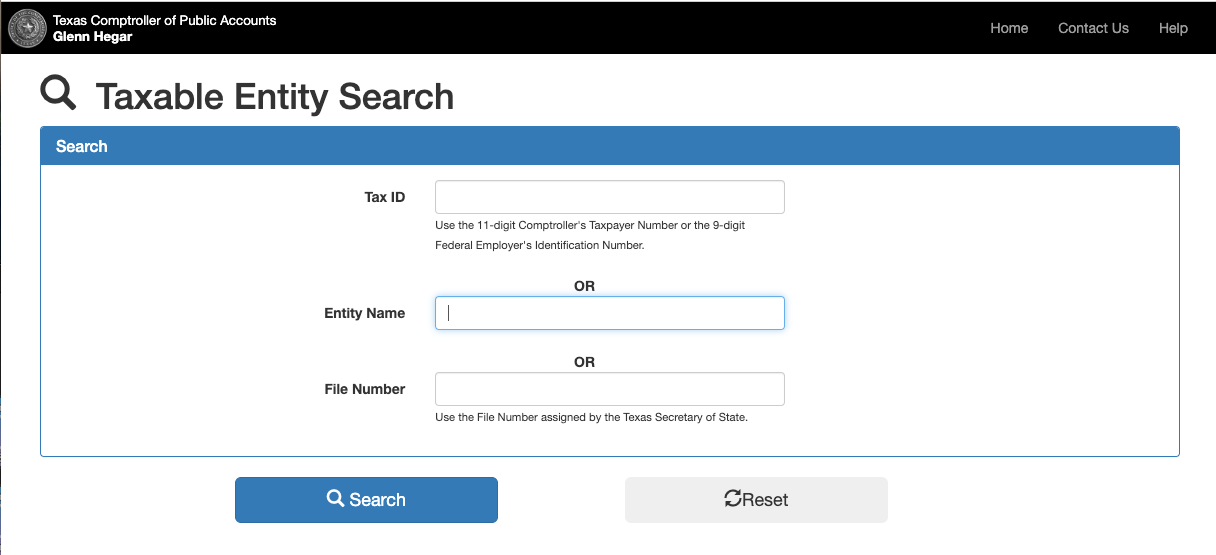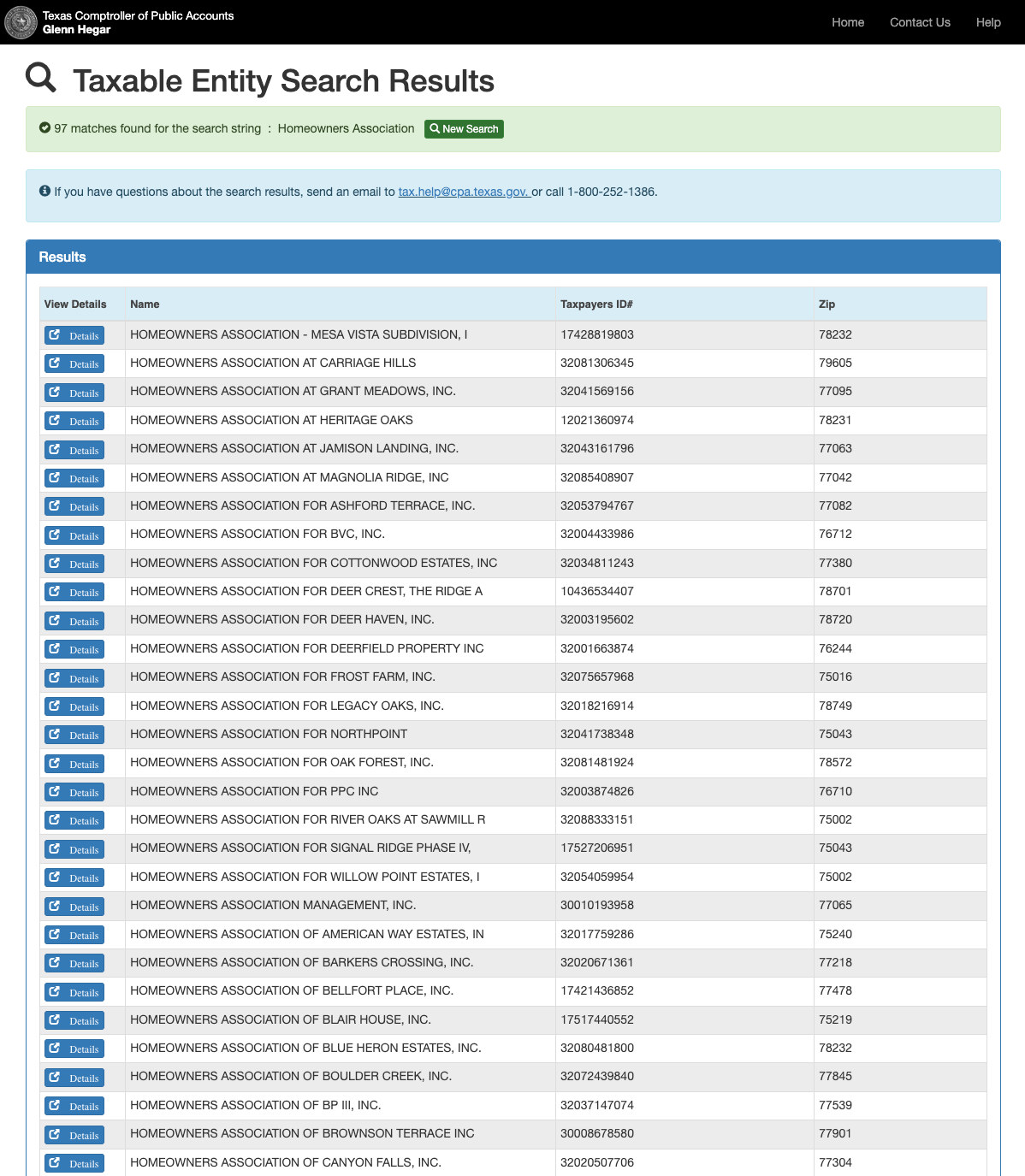
Understanding the corporate status of a homeowners association (HOA) in Texas is important for residents and prospective homeowners. The Texas Secretary of State provides SOSDirect, an online search tool to see if your property owners' association is a nonprofit corporation. If so, this website will allow you to see its articles of incorporation and other documents related to its formation. However, registration and a $1 fee per search are required.
Another option is to use the Texas Comptroller of Public Accounts Taxable Entity Search, which allows you to search for free and provides a status on whether the HOA has the right to transact business in Texas and other Secretary of State information. This guide walks you through the process of using this Taxable Entity Search website to search for and verify the corporate status of an HOA.

Access the Comptroller of Public Accounts Taxable Entity Search website
To begin, visit the Texas Comptroller of Public Accounts Taxable Entity Search website, the official portal to search for the taxable status of HOAs if they are registered.


Choose the Search Criteria
Once on the website, you'll see options to search by different criteria:
- Tax ID: The 11-digit Comptroller's Taxpayer Number or the 9-digit Federal Employer's Identification Number (FEIN).
- Entity Name: The most common way to search. You'll need the exact or partial name of the HOA.
- File Number: The unique identifier assigned to the entity by the Secretary of State.

Enter the HOA's Name (Tax ID or File Number) and Search
Type the HOA's name (or Tax ID or File Number) into the search field. You can use the full name or part of the name. The website will return a list of entities that match or closely resemble the name you entered.

Review the Search Result
After submitting your search, the website will display a list of entities that match your query. Each entry in the list will include the key information such as:
- Entity Name: The official name of the HOA as registered with the state.
- Taxpayer ID Number: The unique number assigned to the HOA for tax purposes.
- Zip Code: The registered address zip code of the HOA, which helps identify the correct entity in case of similar names.


Verify the HOA's Corporate Status
Click on the "Details" button provides more details such as:
- Texas Taxpayer Number: The unique number assigned to the entity for state tax purposes.
- Mailing and Registered Office Addresses: The official addresses on file for the HOA.
- Right to Transact Business Status: Indicates whether the HOA is Active, Forfeited, Not Established, Franchise Tax (Involuntarily) Ended, and has the legal right to operate in Texas.
- Secretary of State File Number: The number the Secretary of State assigned when the entity was registered
- Registered Agent: The person or entity designated to receive legal documents on behalf of the HOA.
- Public Information Report (PIR) of the Directors: Lists the officers and directors of the HOA, providing transparency about its leadership.
Why Checking Corporate Status Matters
Verifying the corporate status of an HOA is important for several reasons:
- Legal Compliance: An HOA must be in good standing to enforce its rules, levy fines, or collect dues.
- Transparency: Knowing the status of the HOA helps ensure transparency in its operations.
- Decision-Making: Homeowners, potential buyers, and board members need this information to make informed decisions.
The Texas Comptroller of Public Accounts Taxable Entity Search website is a valuable resource for anyone looking to verify the corporate status of an HOA. Following the steps outlined above, you can easily find the necessary information to ensure that an HOA complies with state regulations and operates legally.
Consulting with a legal professional specializing in HOAs and corporate law may be beneficial for more detailed searches or specific inquiries.
_____________
Want a way to keep tabs on your HOA's corporate status? Contact reTHINK HOA to discover how we can support your HOA.
Disclaimer: The information provided in this article is intended for general informational purposes only. It does not constitute legal, financial, or professional advice, nor is it a substitute for consulting with qualified professionals. While we strive to provide accurate and up-to-date information, we make no guarantees regarding the applicability or accuracy of any information provided. Users are encouraged to consult with a qualified attorney, financial advisor, or legal professional for advice tailored to their specific situation. reTHINK HOA is not responsible for any actions taken based on the information provided in this article.






